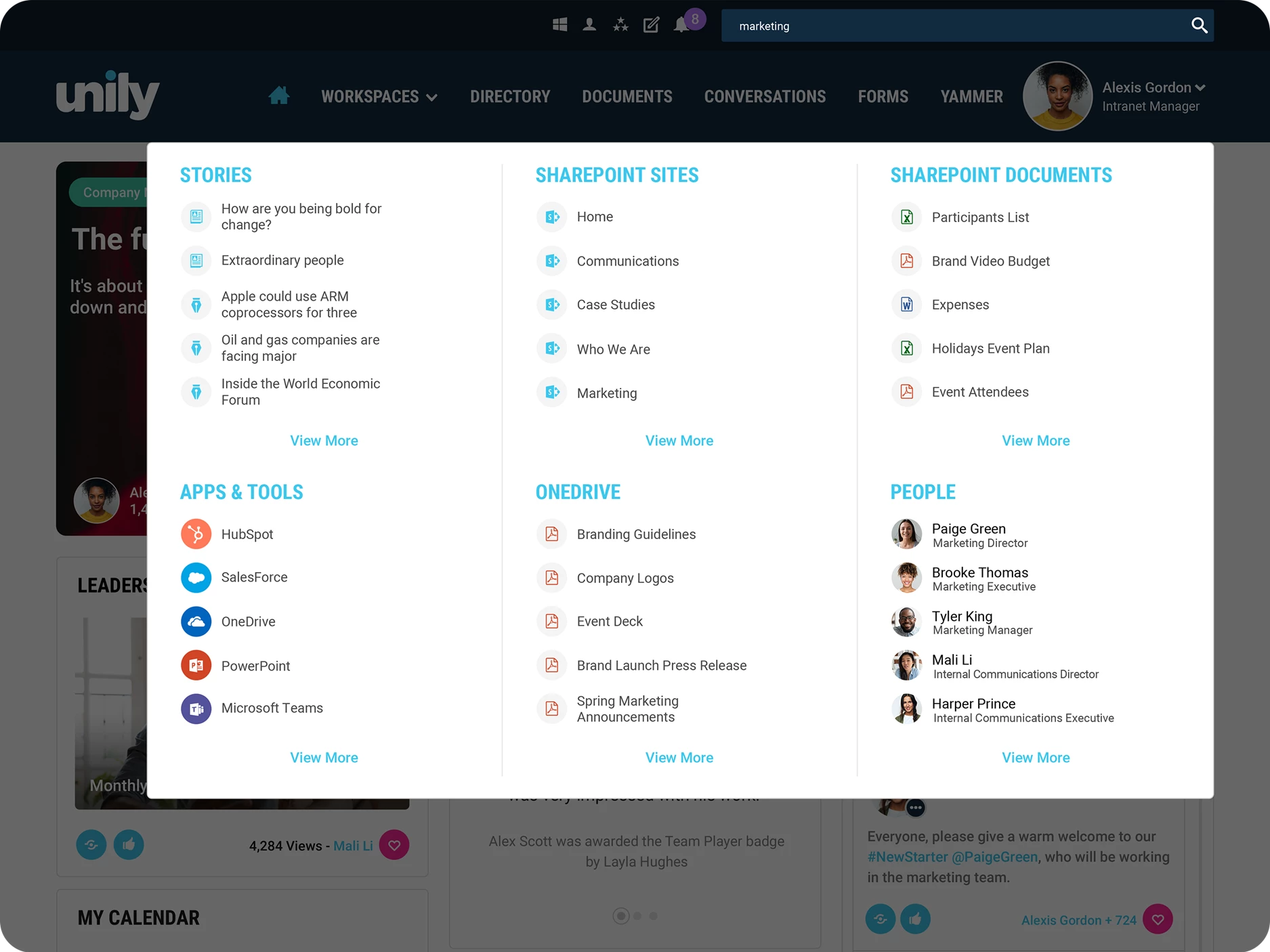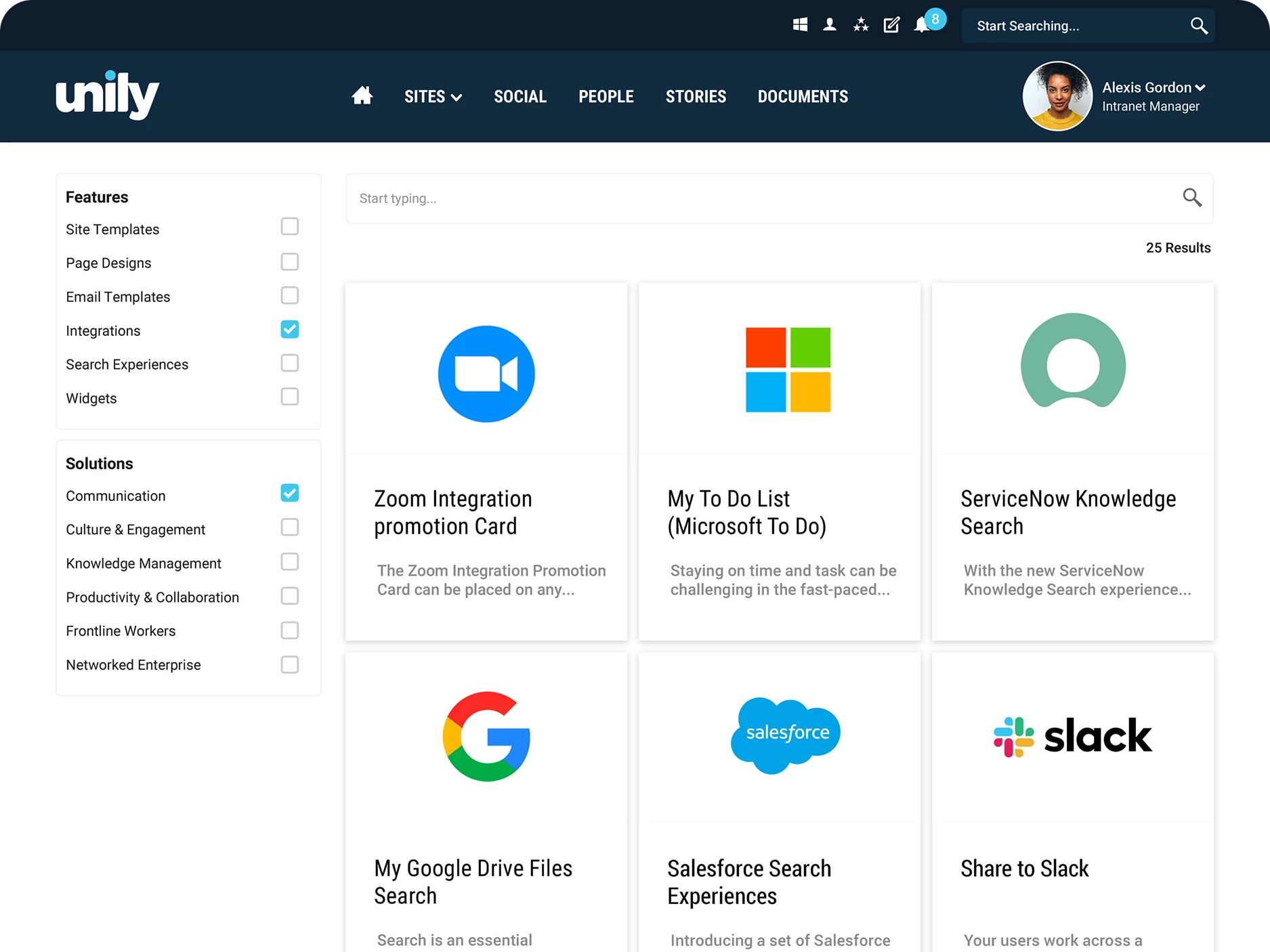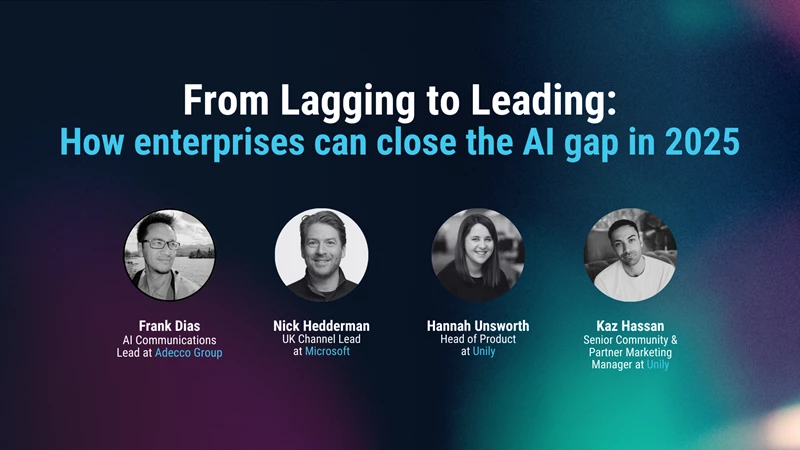Why you need to unite your tech stack into a single digital experience
Constant platform switching is a drain on employee efficiency. But that's not the only reason enterprises are prioritizing uniting applications into a single digital experience. Find out why the single pane of glass is the solution your enterprise needs.

Beware the complex tech stack
In today's hybrid workplace technology is firmly at the core of every interaction. The number of apps and tools the average employee relies on daily is upwards of 12 and growing every day. The result is a bloated and confusing tech stack that stands to create as many problems as it solves.
For employees, the result is a disjointed, jarring user experience filled with app-switching and uncertainty over where to go for what. For IT departments it means more headaches managing an increasingly complex tech landscape and rolling out new tools at pace.
All of this comes at a time when the digital employee experience enterprises offer is under more scrutiny than ever.
So what's the answer?
At Unily, we've been banging the 'single pane of glass' drum for a few years now. It's our belief that enterprises need a single digital home where they can house company news, critical applications, enterprise knowledge, social and community spaces all in one place.
We always saw an evolved version of the intranet taking on this role, and now it seems like that vision is becoming a reality with big analysts like Gartner and Forrester recommending intranet modernization as key to succeeding in the new landscape.
"Technology architecture leaders who have not yet supported an intranet modernization effort must prepare to do so."
What is a single pane of glass experience?
Before we dive into the benefits of a united tech stack, let's define what we mean by 'single pane of glass'.
"The goal of the single pane of glass is to bring your most valuable business applications together into a cohesive experience that reduces application switching and enables simple micro-transactions from one platform. "
The single pane of glass is achieved by integrating different applications into a go-to hub, and this hub is usually the company intranet or employee experience platform.
It's about reducing app switching, putting information into a wider context, and delivering a smoother more intuitive digital experience that makes employees, IT execs, and business leaders sigh a breath of relief when they log on in the morning.
The reasons a united tech stack makes everyone happy? Read on...
Five reasons to prioritize uniting your tech stack
#1. Tackle digital friction
Digital friction refers to the unnecessary effort employees have to expend to get work done across multiple systems and tools. In today's app-saturated workplace, digital friction is a leading cause of employee frustration.
Gartner reports that digital friction is overwhelming workers:
- 68% of workers spend much of the day toggling between apps
- 28% of employees’ time is spent exclusively on emails
- 20% of employees’ time is spent looking for information
Uniting apps and tools into a single digital experience brings clarity to complex technology stacks by giving employees one intuitive space to find the systems and knowledge they need. With the digital workplace now superseding the physical workplace in importance, time spent improving DEX and reducing digital friction is time well spent. After all, this is the new competitive frontier - top talent expects digital experiences that meet their expectations and enterprises that don't hit the mark risk losing their best people.
#2. Reboot productivity
When digital friction is tackled the productivity boost can be mind-blowing. Take global energy giant Shell: when they launched their employee experience platform - The Hub - back in 2019, the company had a vision of a single destination for knowledge, systems, and communications that would overhaul the digital employee experience. By introducing a relatively simple searchable apps and tools launchpad, they were able to save their users valuable minutes finding the right tools to complete tasks. When they tested the results they found they had increased time-to-task by 66%, saving upwards of $42m per annum.

#3. Banish knowledge siloes and put information in context
Gartner recently found that 44% of users occasionally or frequently made a wrong decision because they did not have the information they needed. Additionally, 43% of users reported occasionally or frequently failing to notice important information because of too many applications or the volume of information.
By bringing data from different systems into a single, contextual view, your people are empowered to make better decisions, faster. It's not just about being to search multiple repositories at once (although that is pretty useful), it's also about being able to cherry-pick specific data points from different systems and bringing them together in a single view to deliver insights that would previously have been harder to spot.
When knowledge and data are united, innovation flourishes. That's why we're seeing more requests for dashboard-type experiences like the Microsoft and Google examples you'll find further down the page. Below this is a global search experience; equally useful but less advanced in terms of integration complexity.

#4. Unlock more value from tech investments
A united tech stack cuts on costs by leveraging a single platform for access and management of your wider enterprise technology. Central employee experience platforms allow you to consolidate duplicate technologies and do away with systems that add less value. Furthermore, they allow you to drive better adoption of existing technologies by giving users an intuitive place to discover and access enterprise applications. Finally, when a new tool is rolled out, having a central launch pad helps IT manage the process smoothly. Win, win, win.
#5. Keep security bulletproof and provision access from anywhere
Remote and mobile working solutions are blurring the network’s edge, amplifying cybersecurity threats and making IT teams work double-time to keep security watertight. The mass shift to a hybrid future of work has unintentionally opened new surfaces prime for cyber-attack.
Implementing a secure digital hub to channel access to third-party systems from one source helps mitigate these risks.
As a common gateway to the wider digital workplace, traffic can be monitored and managed easily. Secure APIs and single sign-on security make integrated access to third-party tools safe. Multiple-factor authentication (MFA) with industry-standard OAuth 2.0, and secure encrypted credential storage ensure that your users are safe to access your platform and all that it offers from anywhere.

Where can you start?
Uniting your entire enterprise tech stack is a big undertaking and modern employee experience platforms offer a vast array of integration opportunities, so it pays to prioritize points of strategic value. Aim to focus first on suites like Microsoft 365 and Google Workspace, then work your way down the list in terms of value to the business:
Microsoft 365
Microsoft is a stalwart in the enterprise tech stack. The power and potential of Microsoft 365 is clear, but implementation is where many strategies fall short. The true value of your Microsoft investment lies in how well you bring these tools together to form a cohesive digital workplace.
A centralized digital hub that brings Microsoft apps together into a single pane of glass experience is key to driving adoption and generating ROI. This is where the seamless integrations of an employee experience platform steps in, immersing users in a holistic, consistent platform instead of linking off to external applications with disjointed user experiences.

Google Workspace
Enterprises need a way of bringing Google’s productivity tools into context, integrating Google Identity services, Gmail, Google Drive, and Google Calendar into a cohesive user experience. Taking the tools people use every day and placing them alongside access to your entire digital workplace is a powerful combination for optimizing employees’ workflows.
From accessing files in Google Docs and Google Drive to collaborating and sharing materials on Sites, employees can get the best out of your Google tools through deeply configurable integrations with Google Workspace.

Simplify integrations with a Feature Store
Developing integrations can be complex and often require developer teams. However, that's changing.
When integrations are made as easy as downloading a new app from the App Store, uniting your entire enterprise’s tech stack becomes a lot less daunting task.
Some platforms, Unily included, offer a feature store model that means you can download pre-packaged integrations in a matter of minutes. Rather than building complex integrations, platform owners can trawl a library of common integrations and try them out for size.

Unite your technology with one go-to hub
Find out how an employee experience platform like Unily can help bring all your enterprise technology into one seamless experience and drive more value from your existing investments.
Get started. Get your personalized demo.
Discover how to unite your tech stack and ramp workforce productivity.














